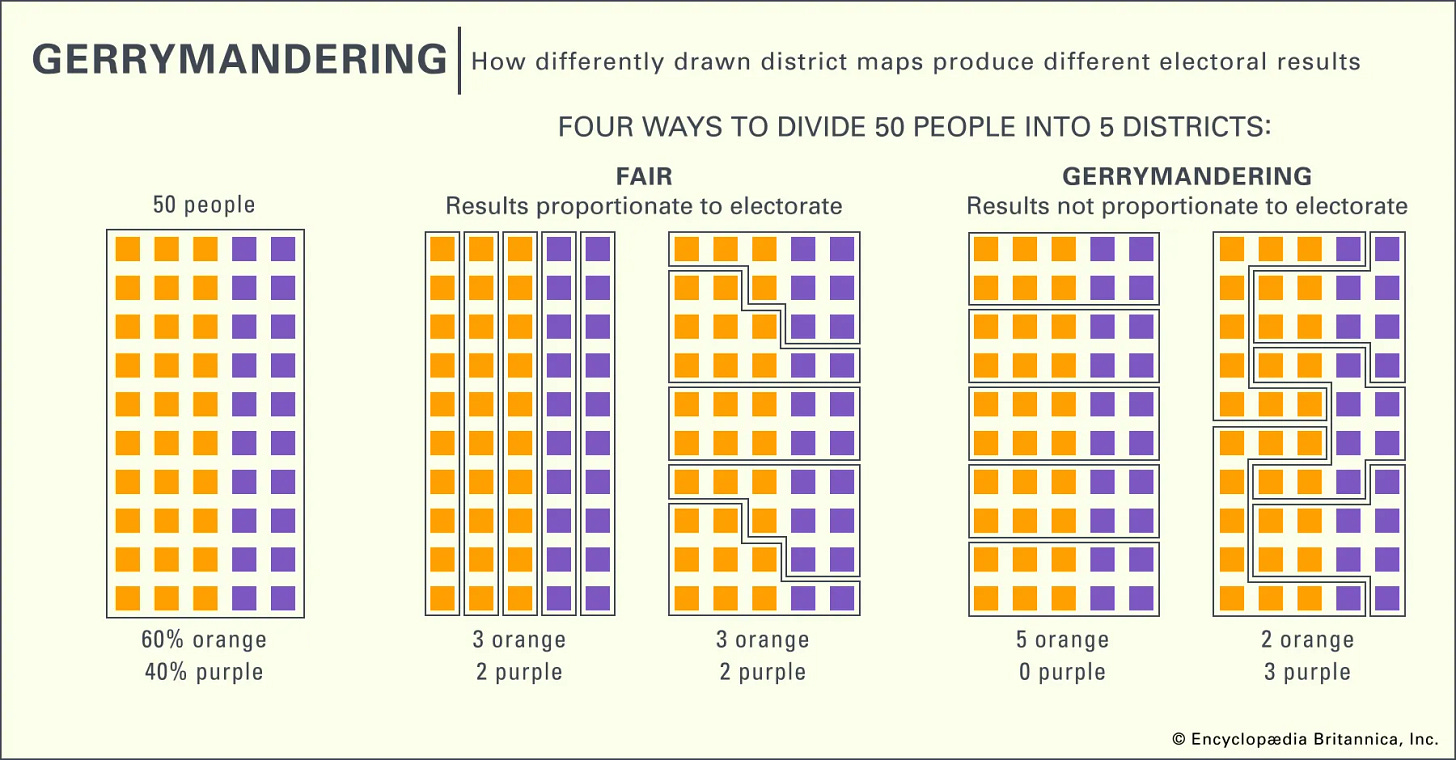Gerrymandering and the Unmaking of a Political Moderate
In arguments last week, South Carolina asked the Supreme Court to let it use a new Congressional map even though a lower court said the map amounted to racial gerrymandering.
Let’s unpack what this means for democracy.
First, the reason we have “redistricting” is that we believe everyone’s vote should be equal. If my vote is 1 of 100 in my district, and yours is 1 of 500 in your district, my vote is effectively more powerful. To avoid that, states redraw districts to equalize population.
States are supposed to follow other rules when drawing districts: keep the districts compact, not spread over large areas; try not to divide up neighborhoods and towns; and—crucially—don’t use race as a driving factor.
Sorting voters based on race (i.e., gerrymandering) undermines democracy. Packing most of a state’s Black voters into one or two districts, for example, undermines their voting power elsewhere. If Black voters are 30% of a state’s population but get sorted so their votes only matter in 10% of the state’s districts, that’s anti-democratic and unconstitutional.
The second threat gerrymandering poses to democracy is that it creates “safe seats.” Gerrymandered districts full of reliably partisan voters enable extremist candidates.
Fair districts—drawn without race or partisanship in mind—provide the opposite incentive. If candidates have to appeal to a broad coalition of different types of voters in a district, they’re more likely to adopt moderate positions, and less likely to engage in polarizing behavior.
There’s a direct connection between fair maps, reduced extremism, and less political polarization. We don’t have to look further than the South Carolina district at issue in the Supreme Court for proof.1
When first elected in 2020, Republican Congresswoman Nancy Mace was relatively moderate. She supported cannabis legalization, opposed offshore drilling, promoted COVID vaccines, and chastised Trump for January 6th. She used a clown emoji to describe Marjorie Taylor Green.
Then her district was redrawn. The new map took away much of Charleston and almost two-thirds of Charleston County’s Black voters. It replaced them with the more rural Berkeley County and three Republican neighborhoods from another district.
Mace became a different kind of Republican. She voted with the far-right to remove Kevin McCarthy as Speaker.2 She became a leading voice for Biden’s impeachment. She now says she suffers long-term ailments from her COVID vaccine. She endorsed Trump for President.
Her calculations will probably pay off. The Court is likely to leave the new, more MAGA map in place. Trump endorsed her in return. The seat is rated “Likely Republican.”3
Gerrymandering is intensely complex, which makes it easy to tune out. But it’s also intensely important because of what it means for voters’ ability to make their voices heard, and for the types of voices we hear coming from Washington. So stay tuned in for more democracy updates, and have a great week.
Follow developments in the case at Democracy Docket.



